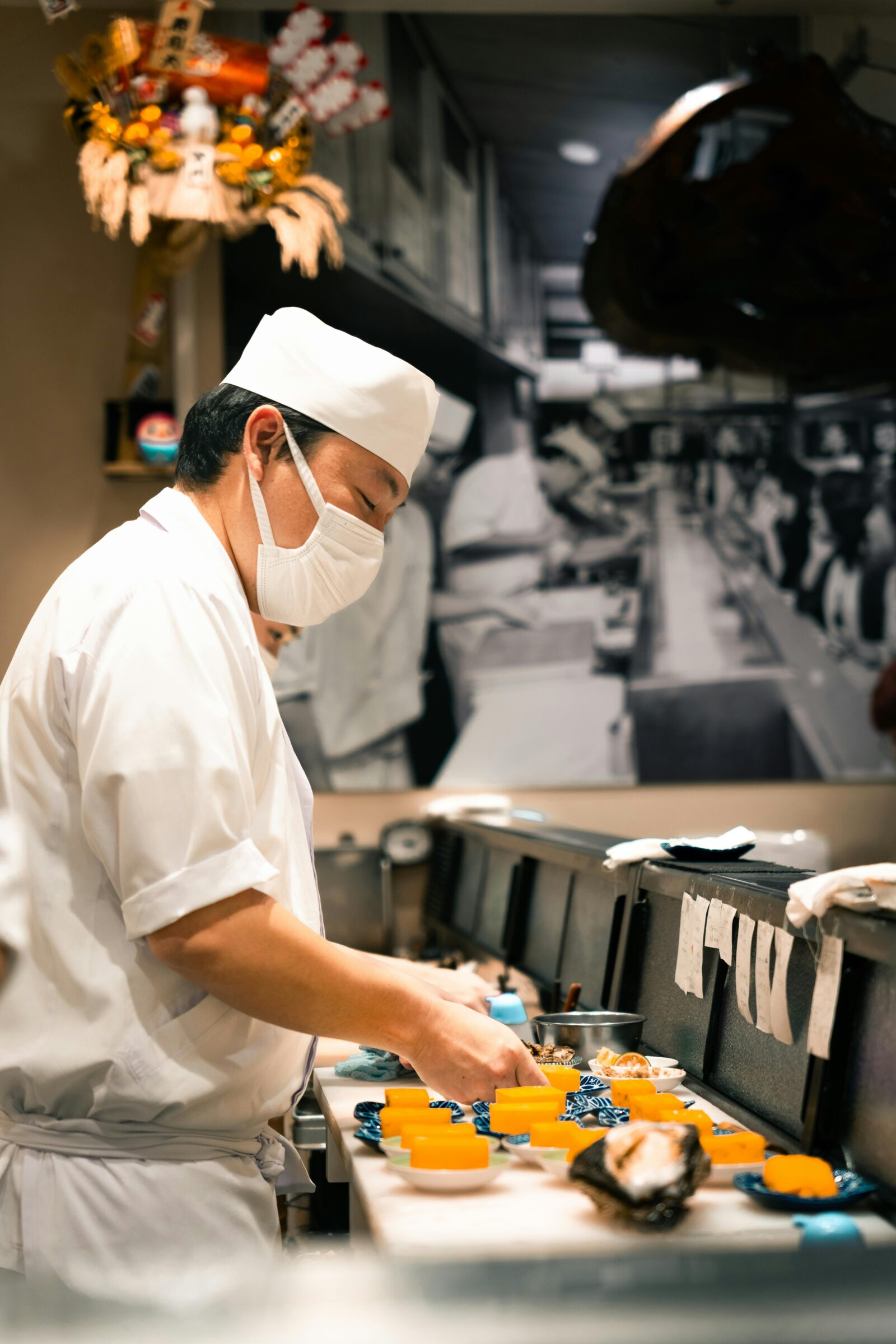🌸 The Cultural Values Behind “No Tipping”
One of the first lessons many foreigners learn in Japan is simple: don’t tip.
It may feel strange at first, especially if you come from a country where tipping is routine. But in Japan, tipping simply doesn’t fit.
Service here is seen as part of one’s professional duty—not an extra favor to be rewarded. The philosophy of omotenashi underpins this mindset. Omotenashi means anticipating a guest’s needs and offering care sincerely, without expecting anything in return.
In restaurants, hotels, taxis, and shops, staff are trained to provide high-quality service as the standard. It’s not tied to how much you spend or how generous you are—it’s simply what every customer deserves.
Unlike tipping cultures, where workers rely on extra pay to supplement low wages, Japan maintains fair, stable base salaries. Service quality remains consistent whether you’re a local or a tourist.

The Disadvantages of Tipping
While tipping may seem harmless to visitors, introducing it in Japan could bring long-term consequences:
- Unequal Service – In tipping cultures, staff sometimes prioritize customers who pay more. Japan values fairness: every guest should receive equal care.
- Loss of Sincerity – If tips became expected, service could shift from heartfelt to transactional, weakening the spirit of omotenashi.
- Customer Pressure – Tourists and locals might feel anxious about when or how much to tip, turning dining into a stressful experience.
- Worker Stress – Staff could become dependent on unpredictable income, facing financial insecurity.
- Risk of Wage Decline – Employers might justify lowering base pay, as seen elsewhere, making service jobs less stable and dignified.
Part of Japan’s charm lies in its simplicity: the price you see is the price you pay—and excellent service is already included.

The Hidden Impact on Locals and Skilled Workers
The spread of tipping wouldn’t just affect tourists; it could quietly reshape how Japanese workers view their jobs, their customers, and even their sense of pride.
1. Erosion of Professional Pride
Across Japan, from chefs and ryokan attendants to taxi drivers and caregivers, work is often treated as a craft—something to be done with care and precision. This spirit, known as shokunin kishitsu (職人気質), reflects pride in doing one’s best simply because it’s the right thing to do.
If tipping becomes common, that pride risks turning into competition. Workers might start comparing who earns more instead of who gives more heart. The quiet honor behind Japanese service could fade into rivalry.
2. Unfair Pressure on Service Workers
In tipping countries, workers often feel forced to “perform” for tips—smiling longer, talking more, or pretending cheerfulness. In Japan, where service already demands perfection, that extra pressure could lead to emotional exhaustion. Genuine omotenashi could become staged, replacing sincerity with performance.
3. Inequality Among Customers
Japan’s sense of harmony, or wa (和), ensures everyone is treated with equal respect. A businessman and a student receive the same care. If tipping culture spread, that balance could break. Service might tilt toward wealthier guests, undermining the very equality that defines Japanese hospitality.
4. Wage Risks for Skilled Workers
In countries where tipping is standard, employers often reduce base salaries. If that happened in Japan, it could destabilize professions that rely on years of skill—sushi chefs, hotel attendants, caregivers. Their steady pride and security could be replaced by uncertain earnings.
5. Impact on Future Generations
If service jobs become unstable or emotionally draining, young people may turn away from them. The dignity once associated with these professions could fade, taking with it a vital part of Japan’s cultural heart—the quiet, steady care found in everyday service.
When It’s Okay to Tip in Japan
Although tipping isn’t part of daily life, there are rare exceptions where a small gesture may be accepted—if done respectfully and correctly.
- Ryokan (Traditional Inns): Guests sometimes give a small gratuity (kokorozuke, 心づけ) in a decorative envelope to staff who provide personal, extended service such as preparing futons or meals.
- Private Guides or Interpreters: If someone spends the day assisting you and goes above and beyond, a modest tip—also in an envelope—is appreciated.
- Extraordinary Personal Service: In rare cases, a small token may be accepted if offered discreetly and with sincerity.
Some Japanese people may also tell a taxi driver or cashier:
「お釣りはいいです。」(Otsuri wa ii desu.) — “You can keep the change.”
This isn’t a tip, but a polite gesture for small amounts, often just a few yen.
Etiquette Tip: Always place money inside a clean envelope and hand it over with both hands. Never leave cash on the table—staff may chase you to return it!
Alternatives to Tipping
Since tipping isn’t part of Japan’s culture, appreciation is best shown through words, consistency, and sincerity:
1. Say Thank You — From the Heart
A heartfelt “ありがとうございます (arigatou gozaimasu)” or “ごちそうさまでした (gochisousama deshita)” after a meal means a lot. A smile and eye contact express genuine warmth—something every worker notices.
2. Compliment Their Service (Especially in Front of a Manager)
If someone impresses you, tell the manager:
“〇〇さん、とても親切でした。ありがとうございました。”
([Name]-san wa totemo shinsetsu deshita. Arigatou gozaimashita.)
Your words can brighten a worker’s day and may even be mentioned in staff meetings—an honor far greater than a tip.
3. Leave a Positive Review
Online reviews on Google Maps, Tabelog, or social media greatly help small businesses. Be specific and kind—praise the atmosphere, service, or details that made your experience special.
4. Bring Omiyage (Souvenirs)
If you’re a regular guest, bring a small gift from your hometown. Local snacks or tea show thoughtfulness (kokoro). Offer it with both hands and say:
“いつもありがとうございます。” (Itsumo arigatou gozaimasu.) — “Thank you for always taking care of me.”
5. Be a Loyal Customer
Returning often and greeting staff warmly is one of the highest compliments in Japan. Many workers remember familiar faces and treat repeat guests like old friends.
6. Write a Thank-You Note
For meaningful service or kindness, a short handwritten note is deeply touching. Sincerity matters more than elegance. Even a simple message—“Thank you for your kindness the other day” (先日はありがとうございました – Senjitsu wa arigatou gozaimashita)—is cherished.
In Japan, gratitude is quiet but powerful. It’s not about how much you give, but how sincerely you mean it.
Personal Reflection
When I first arrived in Japan, I felt awkward not tipping. In the U.S., not tipping can be seen as disrespectful, so it felt strange to simply walk away after paying the bill. But over time, I learned to appreciate the difference.
The service was always reliable—whether at a small ramen shop or a luxury ryokan. Workers didn’t need extra motivation to be kind; professionalism was simply part of who they were.
The more I experienced this, the more I realized: the absence of tipping makes life simpler.
No mental math. No anxiety about offending someone. No wondering if you gave enough. Just pure, consistent hospitality.
Why Preserving “No Tipping” Matters
As Japan welcomes more visitors, it’s natural that foreign customs might slowly blend into daily life. But the “no-tipping” tradition holds a quiet beauty that’s worth protecting.
Here, good service isn’t a favor to be rewarded—it’s a form of respect. Whether it’s a waitress, a taxi driver, or a shop clerk, each person takes pride in doing their job wholeheartedly.
Keeping this tradition alive ensures that service remains:
- Fair – Every guest receives equal attention.
- Sincere – Kindness is genuine, not bought.
- Stable – Workers can rely on steady wages.
- Respectful – Pride replaces pressure.
If tipping became the norm, it could change how people connect. Some might chase bigger spenders; others might feel ignored. The calm, balanced spirit of omotenashi could be lost beneath money’s influence.
Protecting the “no-tipping” culture isn’t about resisting change—it’s about preserving something deeply human: the belief that true care doesn’t need a price tag.

In Japan, hospitality doesn’t carry a price tag. Service is already included—not just in the bill, but in the culture.
Tipping may work elsewhere, but in Japan, it risks undermining values of fairness, respect, and sincerity. Gratitude is better shown through kind words, loyalty, and thoughtfulness.
Living in Japan has taught me that the best service is the kind that shines naturally—through a small bow, a carefully wrapped purchase, or a warm towel before a meal. These gestures are priceless because they come from the heart.
For the future of Japan, I hope tipping remains unnecessary—and that omotenashi continues to define what true hospitality means.

